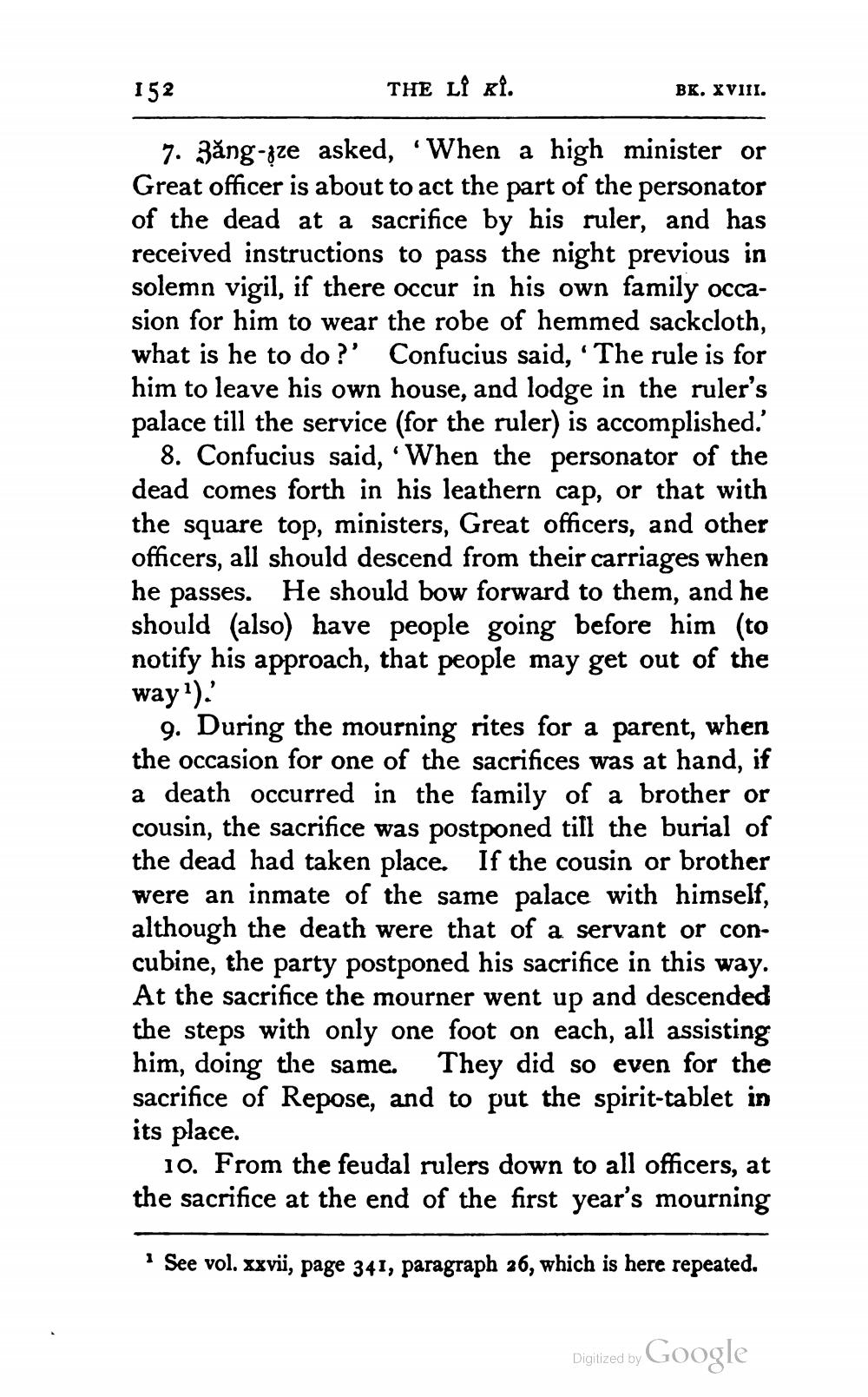________________
152
THE LÎ ki.
BK. XVIII.
7. Zăng-zze asked, “When a high minister or Great officer is about to act the part of the personator of the dead at a sacrifice by his ruler, and has received instructions to pass the night previous in solemn vigil, if there occur in his own family occasion for him to wear the robe of hemmed sackcloth, what is he to do?' Confucius said, 'The rule is for him to leave his own house, and lodge in the ruler's palace till the service (for the ruler) is accomplished.'
8. Confucius said, 'When the personator of the dead comes forth in his leathern cap, or that with the square top, ministers, Great officers, and other officers, all should descend from their carriages when he passes. He should bow forward to them, and he should (also) have people going before him (to notify his approach, that people may get out of the way)
9. During the mourning rites for a parent, when the occasion for one of the sacrifices was at hand, if a death occurred in the family of a brother or cousin, the sacrifice was postponed till the burial of the dead had taken place. If the cousin or brother were an inmate of the same palace with himself, although the death were that of a servant or concubine, the party postponed his sacrifice in this way. At the sacrifice the mourner went up and descended the steps with only one foot on each, all assisting him, doing the same. They did so even for the sacrifice of Repose, and to put the spirit-tablet in its place.
10. From the feudal rulers down to all officers, at the sacrifice at the end of the first year's mourning
* See vol. xxvii, page 341, paragraph 26, which is here repeated.
Digitized by Google




